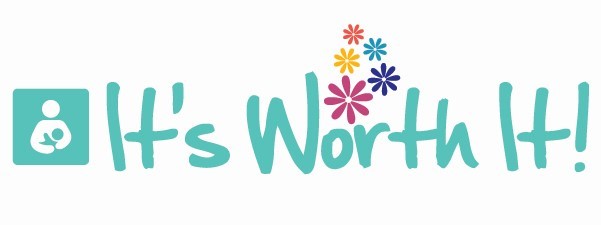Black Breastfeeding Week, August 25-31, 2020: Understand Barriers, Show Support

By:
Danielle Smiley-Daniel, Program Coordinator
City of Hartford Women, Infants, and Children (WIC) Program
Program Manager, Hartford Healthy Family Initiative
Barbara “Basia” Geoghegan, MD, IBCLC (She/her pronouns)
Pediatrician, Wheeler Family Health & Wellness Center, Hartford
The article below appeared in the August 19 issue of Northend Agent's.
Black Breastfeeding Week provides an opportunity to reflect on what we can do as partners, friends, and family members to increase support for black breastfeeding/chestfeeding parents. By doing so, we play a role in helping to promote positive experiences and health outcomes for parents and their babies.
Additional breastfeeding/chestfeeding resources can be found here.
More about National Breastfeeding Month and additional resources are here.
The American Academy of Pediatrics (AAP) recommends that infants be exclusively breastfed for about the first six months, with continued breastfeeding, while introducing appropriate complementary foods for one year or longer; however, according to the Centers for Disease Control and Prevention (CDC), fewer non-Hispanic Black infants, 73.7%, are ever breastfed, compared with non-Hispanic White infants, 86.7%, and Hispanic infants (84.1%).
Some reasons for the disparities include persistent barriers such as the lack of family support; underestimating the importance of breastfeeding benefits for both the infant and parent; perception of better financial support with formula feeding; and the perspective that the process requires "too much work.” Studies have shown there is also systemic racism in the health care system, and also fewer black lactation consultants. The good news is that there are steps that partners, providers, family members, and friends can take to help breastfeeding/chestfeeding parents to overcome these obstacles.
Listen to Concerns, Celebrate Successes
The community surrounding a breastfeeding parent is essential to helping that parent reach their breastfeeding goals. Among the ways you can show support is to actively listen to parents and advocate for them whenever possible. Take the time to hear their concerns or frustrations, and celebrate their successes. Encourage parents to maintain connections with their network of friends and loved ones, and to attend in-person, or online breastfeeding meetings when possible.
Connection, Conversation, and More
Clinicians can provide increased awareness and support at prenatal and postpartum visits and connect parents with resources that are specific to their community and culture, for example black breastfeeding support groups, especially in a virtual format like Mommy’s Natural Milk Breastfeeding Group, made possible with funding from the Centers for Disease Control and Prevention. If you or someone you know is interested in joining this group, please contact Danielle Smiley-Daniel (co-author of this article) at Smild001@hartford.gov or 860.757.4795.
Removing financial barriers for lactation consultants and making available in-office or virtual lactation consultants are also additional potential strategies, as well as having thoughtful conversations with parents that address the "too-much-work" perception and guidance to make the process easier.
Health Issues and Positive Impact
National and statewide data tell this story: Black women have an increased risk of many health issues during and outside of pregnancy. According to the CDC, during pregnancy, black women have a higher risk of maternal death, compared to white women and are more likely to experience a pregnancy-related complication. Outside of pregnancy, black women have higher risks of cardiovascular disease, diabetes, obesity, mental health, and breast cancer. Some conditions may require individuals to be on certain medications that could interfere with breastfeeding; however, there are many alternatives that can be chosen to encourage breastfeeding and good health.
In addition, studies show that breastfeeding has a positive effect on overall health and can help alleviate certain health conditions immediately in the postpartum period and beyond. Breastfeeding helps with weight loss, which also can improve cardiovascular health and chronic health conditions such as diabetes. It also helps with mood regulation and decreases the risk of breast cancer. For infants and children, there is some data that suggests that breastfeeding decreases the risk of allergies/eczema, ear infections, diabetes, and childhood obesity.
Going Forward
 During Black Breastfeeding Week and going forward, consider how you can support breastfeeding/chestfeeding parents. A new statewide campaign entitled “It’s Worth It,” launched by the Connecticut Breastfeeding Coalition, the Connecticut Department of Public Health and their partners, provides a rich array of ideas and resources for the community. Visit itsworthitct.org for details.
During Black Breastfeeding Week and going forward, consider how you can support breastfeeding/chestfeeding parents. A new statewide campaign entitled “It’s Worth It,” launched by the Connecticut Breastfeeding Coalition, the Connecticut Department of Public Health and their partners, provides a rich array of ideas and resources for the community. Visit itsworthitct.org for details.
If you are an expectant parent, or know parents and families who need care, OB-GYN and pediatric in-person and telehealth services are offered through Wheeler’s Family Health & Wellness Center at 43 Woodland Street in Hartford. New pediatric patients are being accepted, and medical visits are offered in Spanish, Polish, and English. Breastfeeding observation is offered as part of the initial evaluation, as well as follow-up visits to monitor baby’s improvement in breastfeeding skills, weight gain and feeding process. Support for the return to the workplace also is offered.
For information or to make an appointment, call Wheeler’s Navigation Center at 888.793.3500





